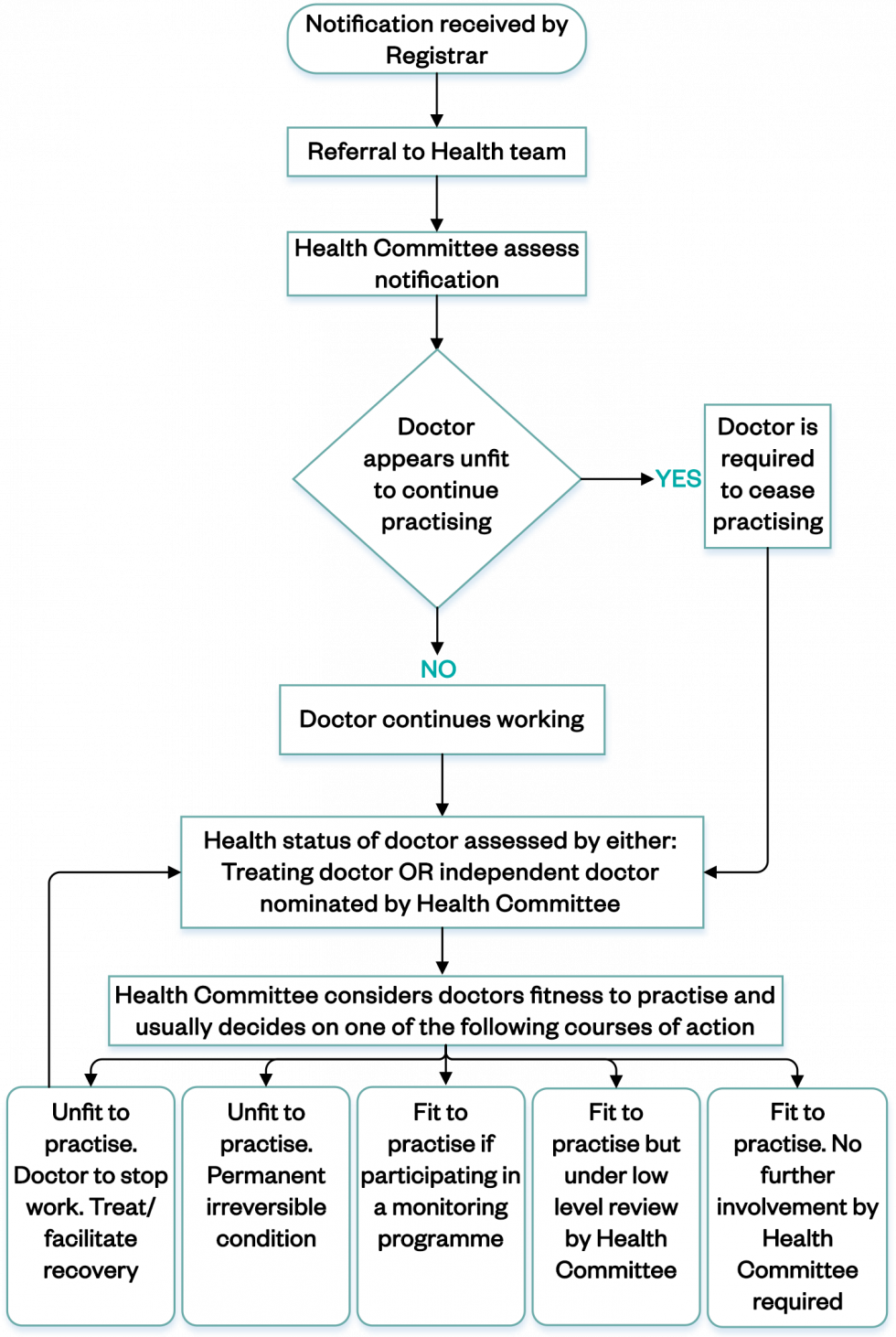Health concern process
A notification around concerns about your health is different from one about conduct, and our approach to dealing with it it is non-judgmental and focuses on your rehabilitation and the safety of patients and people you come into contact with.
What happens when the Council receives concerns about your health?
A notification around concerns about your health is different from one about conduct, and our approach to dealing with it it is non-judgmental and focuses on your rehabilitation and the safety of patients and people you come into contact with.
In the first instance, one of our health case managers will contact you to discuss the concerns and the possible impact on your practice. At that time, we may ask you to provide more information, including:
- a report from your treating doctor(s)
- a report from a specialist nominated by the Health Committee (this will be at our expense).
We may also ask you to cease or limit your practice until we have more information about your health and its impact on your practice.
Once our Health Committee has considered all the relevant information, it'll decide what, if any, action is best, in the interests of everyone concerned.
A number of outcomes are possible, but we may ask you to:
- limit your practice in relevant ways
- agree to treatment or counselling
- agree to monitoring of your health or practice.
Or we may decide to take no further action.
What if a doctor is not willing to cooperate?
That's unfortunate, but in those circumstances the Council will then follow a statutory process which could include:
- interim suspension
- ordering a medical examination
- recommending restrictions on your registration or practising certificate, or a period of suspension while treatment is carried out.
You are entitled to respond to the outcome of this process, which might include meeting with the Health Committee to air your concerns.
Here's what the overall process looks like, once we receive notification of a concern.


